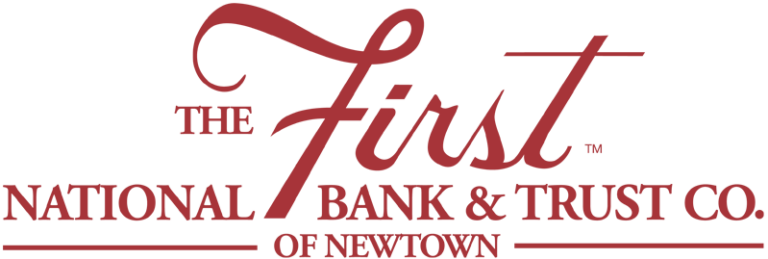A trustee is an individual or a professional fiduciary who oversees a trust on behalf of the person who establishes it (the grantor) for the benefit of one or more beneficiaries. Trusts are typically used to minimize estate taxes and oversee the disbursement of assets. A trust can allow for a faster distribution of assets to the beneficiaries than a will, because wills are processed through probate court, which trusts can usually avoid.
Choosing a trustee is a decision that is not to be made lightly. It should be someone you can trust, as they will have a fiduciary responsibility to always act in your best interest, as well as the interests of the trust and its beneficiaries. A trustee should also be someone competent enough to handle all of the tasks involved. Someone doesn’t have to be an attorney or an accountant to serve as a trustee, but they should have some understanding of the law and an ability to make sound decisions.

A trustee’s tasks include:
- Managing the trust’s assets and making sound investment decisions to preserve and grow its assets on behalf of the beneficiaries.
- Documenting their activities while handling all records and paperwork.
- Distributing the trust’s assets to the beneficiaries, under the provisions of the trust and the grantor’s instructions.
- Giving regular updates to the beneficiaries about the trust’s performance and any changes to its assets.
- Making sure the trust complies with all applicable laws and regulations.
You have three trustee options for estate planning: An individual, a corporate trustee, or a combination of the two.
A Trusted, Competent Individual
When selecting an individual trustee, they should be someone you can trust to make sound decisions, who will have a firm grasp of what’s required and will carry out your objectives. They don’t have to be an accountant or an attorney, but they should have the ability to understand the law and make sound financial decisions. They must also be able to handle the trust fairly and impartially for all the trustees.
Choosing someone within your geographic area would make it easier for them to manage the trust. Depending on how long you expect your trust to be active for, you might also consider someone’s age. Having a trustee who passes away or becomes unable to manage the trust can create problems for the trust itself and your beneficiaries. If you do choose an individual as a trustee, you will need to name one or more successors in case the primary trustee is unable or no longer willing to serve in this role.

A Professional Fiduciary
Professional trustees include banks, trust companies, and law firms that have people whose expertise is in administering trusts, estate planning, and wealth management trust services. The benefits of a professional trustee as they understand the legal compliance and financial issues involving trusts, as well as handling potential conflicts between beneficiaries.
Another benefit to hiring a professional trustee is that they will have levels of compliance and oversight to make sure their actions are in the best interest of the trust. You also wouldn’t have to worry about your trustee retiring, because one or more people would take their place. This is one of the reasons why professional trustees are often used when establishing a multigenerational trust. Professional trustees do charge a fee for their trust management services.
Co-Trustees
Of course, you don’t have to choose just one person or party as your trustee. You can also choose multiple people to serve as co-trustees. This way, they can oversee each other’s actions and serve as a deterrent to misconduct or corruption. You could also choose an individual and a professional fiduciary to serve as co-trustees.
You might set up your trust so that one party has preferential authority in making decisions or require them to work in agreement with each other. Consider your options carefully, so that your trust can be handled smoothly and without conflict. Any disagreements between co-trustees would not be good for your trust or the beneficiaries.

Things to Consider When Choosing a Trustee
Apart from your three options for choosing a trustee, you’ll also have to figure out whom you’ll ask to take on this responsibility. It should be someone you can rely on to best handle your trust while making informed and responsible decisions that fit with your objectives and the best interests of your beneficiaries. Here are a few things to think about when choosing a trustee.
It Starts with Trust
Trusting someone while you’re alive is one thing, as you’ll be able to look over their shoulder. You’ll need someone whose integrity is unquestionable, as they will have a tremendous amount of control over the assets of your trust after you’re gone or can no longer manage things.
Financial Knowledge and Expertise
A trustee should have some knowledge of financial issues and investing so they can make sound decisions regarding the assets of your trust and will make wise decisions in managing them.
An Understanding of the Law
Every trust must be managed in ways that comply with all applicable state and federal laws. A trustee doesn’t have to be an attorney, but they should have a working knowledge of all the legal requirements of managing a trust.
Fair and Impartial
If your trust has more than one beneficiary, there could be disagreements between them over the disbursement of assets. A trustee must be able to treat all your beneficiaries equally and fairly while mitigating any disputes.
Communication Skills
A trustee doesn’t just manage the trust; they also have to keep the beneficiaries informed about its status and explain what’s happening in a way they can understand.
They’ll Follow Your Wishes
A trustee must be able and willing to understand the goals of the trust and to carry them out in ways that fit your goals.
A Long-Term Commitment
A trust could be in effect for years, or even decades. That means whoever you ask to be your trustee should be someone who can make that kind of commitment.

Explore Your Trust Management Options with Us
We have decades of experience in providing wealth management and corporate trustee services in Bucks County. Please contact our wealth management team to discover how we can help you with trusts and financial planning through every stage of your life, or visit one of our convenient locations.



